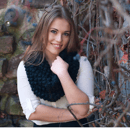It is exceptionally hard to catch a plagiarizer, but the effects of plagiarism can be devastating to one’s career and reputation. It destroys trust in the relationship between reader and writer. That is why I take the matter so seriously.
I had an experience where work of mine had to be taken offline because plagiarized content had been copied and pasted— verbatim— into my work.
As a freshman, I was already in the school of communication, however I had not yet begun classes for my specific major: journalism. I understand that in this field, grades, while important, are less important than experience. If I want to make it, I need connections, a killer resume, and a portfolio.
An issue I found myself facing was I had no idea what an editor was allowed to and not allowed to do. How much of my work could they ethically change?
However, I valued the hands-on experience and continued to write, even into the summer after my freshmen year. It was at this time that an article I had written (on a Google document) was fundamentally changed without my knowledge. Every sentence was rewritten by my editor and an entire new paragraph was added to the beginning of my piece.
I guess I assumed my editor wouldn’t rewrite my work if he wasn’t allowed to.
As a writer, my self-esteem was shattered. Was my writing really bad enough to essentially be scrapped and rewritten?
Upon expressing concerns to family and friends, some completely brushed me off, saying I cannot take constructive criticism. I felt as though my editor was overstepping, but then I felt like maybe I was being oversensitive.
I needed to know if what my editor was doing was okay. I decided to email my ethics professor from the previous semester. He was the first person to realize the severity of the situation. He wrote:
“If this review does not represent your views, I would advise you to oppose its publication. This review is going to be online and might be read by people who might make decisions on whether or not to hire you. I am not saying the edited review is better or worse than your review, but it is not your review… An editor should never add content, but ask the writer to add/change/reword things… By altering your content significantly without giving you a chance to fix things, your editor does not respect your expertise and I would argue is also deceptive to the readers as this is not your review.”
I finally felt like my frustrations were justified.
Before I could oppose publication, the editor-in-chief wanted to talk about why they had already decided not to post the article. She informed me that the content added to my work by my editor was not even his work. He had copied content from other online sources and pasted it verbatim into my article. I was shocked to say the least. I also know that I am not the only writer this had been happening to.
Two articles of mine had to be taken offline.
It took me far too long to advocate for myself, because I doubted my concerns. It is a problem in and of itself that I did not know the full role of an editor, and therefore I was taken advantage of. However, it was so empowering learning that I was right. I finally stood up for myself and now I know— for the rest of my career— exactly the kind of relationship I need to have with an editor.
I am grateful to have had this experience because I learned valuable life lessons that I can apply to my career. It has helped with my role of campus correspondent for HCLUC; I will always have open communication with my writers, as well as respect for the work that they labored over.
I hope this story inspires others to stop doubting themselves and to advocate for themselves when they believe they are treated unfairly. College may not yet be the “real world,” however the work you do in college affects your later career. I have gained back my confidence as a writer and have taken on an editorial role at Her Campus, and I hope it inspires other women to do the same.

